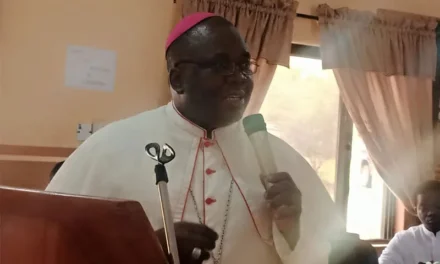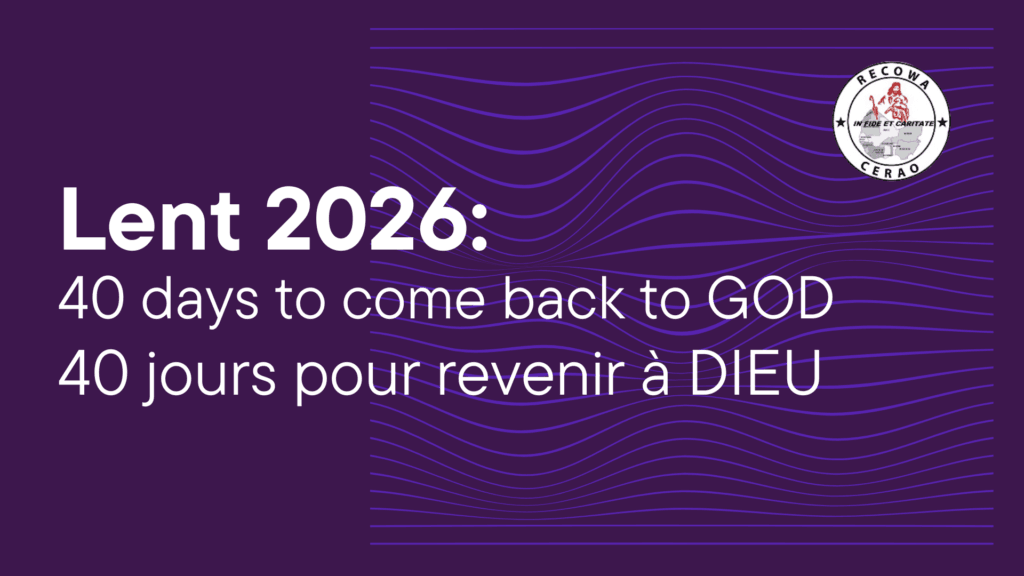One of the Fathers of the Church in Africa who is also the immediate past president of the Catholic Bishops of the West African Subregion under the aegis of RECOWA-CERAO has advised all the leaders in Africa, both in the church and in the civil society to always draw Inspiration from Matthias’ Elections. This election was well captured in the book of the Acts of the Apostles as an outstanding election devoid of “violence, rigging and bitterness”:
The election of Matthias to replace Judas Iscariot recounted in the Acts of the Apostles provides good lessons for the people of God in Nigeria during the electioneering period, Archbishop Ignatius Ayau Kaigama of the country’s Catholic Archdiocese of Abuja has said.
In a text of a homily, he published on Facebook on May 12, Archbishop Kaigama reflects on the First Reading for Feast of St. Matthias, the Apostle, marked on May 14.
“In the election of Matthias in Acts of the Apostles, we see how the assembled disciples recognized clearly that God’s will is supreme, and so they prayed and left the final choice to God. That was how Matthias was chosen as an apostle,” he says.
“From the election of Matthias in the first reading we in Nigeria should beware not to allow our unhealthy political scheming to prevail each time we conduct elections,” he says, adding, “See the example of a flawless, God-inspired election. No violence, no rigging, no court case, no bitterness.”
The Nigerian Catholic Church leader implores, “May our leaders be guided by such ethical and God-fearing conduct during elections and in governance.” He goes on to advocate for “ethics and morality” in the politics of the West African nation.
He says, “Let us do all it takes to develop our nation, to realize that all our political or economic actions must be inspired by ethics and morality.”
“We cannot see politics as only a means to affluence, influence /and unbridled access to our common patrimony. Enough of politics riddled with corruption that pervades the primary elections, the real elections and even court processes,” Archbishop Kaigama says.
He emphasizes the need for morality among politicians of Africa’s most populous nation, saying, “Do not exclude morality from politics.”
“In this month of May as we pray our Rosary daily, may we all experience greater inner, social, political, and economic transformation,” the 65-year-old Catholic Church leader, who started his Episcopal Ministry in April 1995 as Bishop of Nigeria’s Jalingo Diocese further implores.
In the May 12 Facebook text of his homily, Archbishop Kaigama also reflects on the 58th World Day of Social Communications Day (WCD) 2024, the annual event marked on the Sunday before Pentecost during which the Church celebrates the achievements of the communications media and how they can be engaged to promote gospel values.
“I call on our knowledgeable young people who use social media and other forms of social communication not to promote immorality and crime, but to spread those values and virtues that promote the common good and transform our world riddled with many social vices and anti-God policies and strategies,” he says.
The Local Ordinary of Abuja Archdiocese since November 2019 adds, “I would like to see more of the presence of our youth in the archdiocese spreading the pastoral, spiritual and social activities of our Archdiocese through the different forms of the media.”
He looks at media as possible instruments of “solidarity and understanding” that can be engaged to foster the dignity of persons, strengthening mutual “friendship and love”.
“May the mass media effectively become an extraordinary resource to promote solidarity and understanding within the human family and not fuel prejudice and contempt between individuals and peoples,” Archbishop Kaigama implores
May the various means of contemporary communication, he continues, “contribute to spreading peace and ensuring objectivity, respect for human dignity, and attention to the common good; to bring down the walls of hostility that continue to divide humanity, and to strengthen the bonds of friendship and love.”
Pope Paul VI established the World Communications Day in 1967, to help the people of God reflect on the opportunities and challenges that the modern means of social communication, including the print and broadcast channels can afford the Church to communicate the gospel message.
- CATHOLIC ARCHBISHOP IN GHANA HAILS POPE LEO XIV AS GOD’S GIFT - 23 mai 2025
- POPE LEO XIV TO APPROVE CANONIZATIONS - 22 mai 2025
- THE EVOLUTION OF PAPAL TRANSPORTATION - 20 mai 2025







